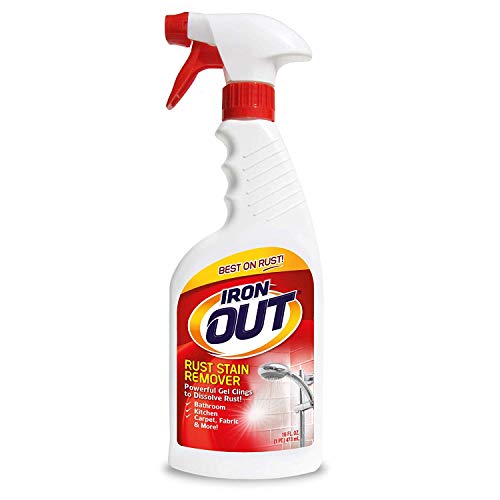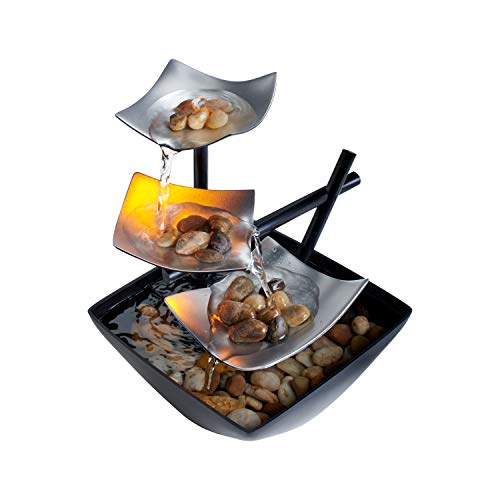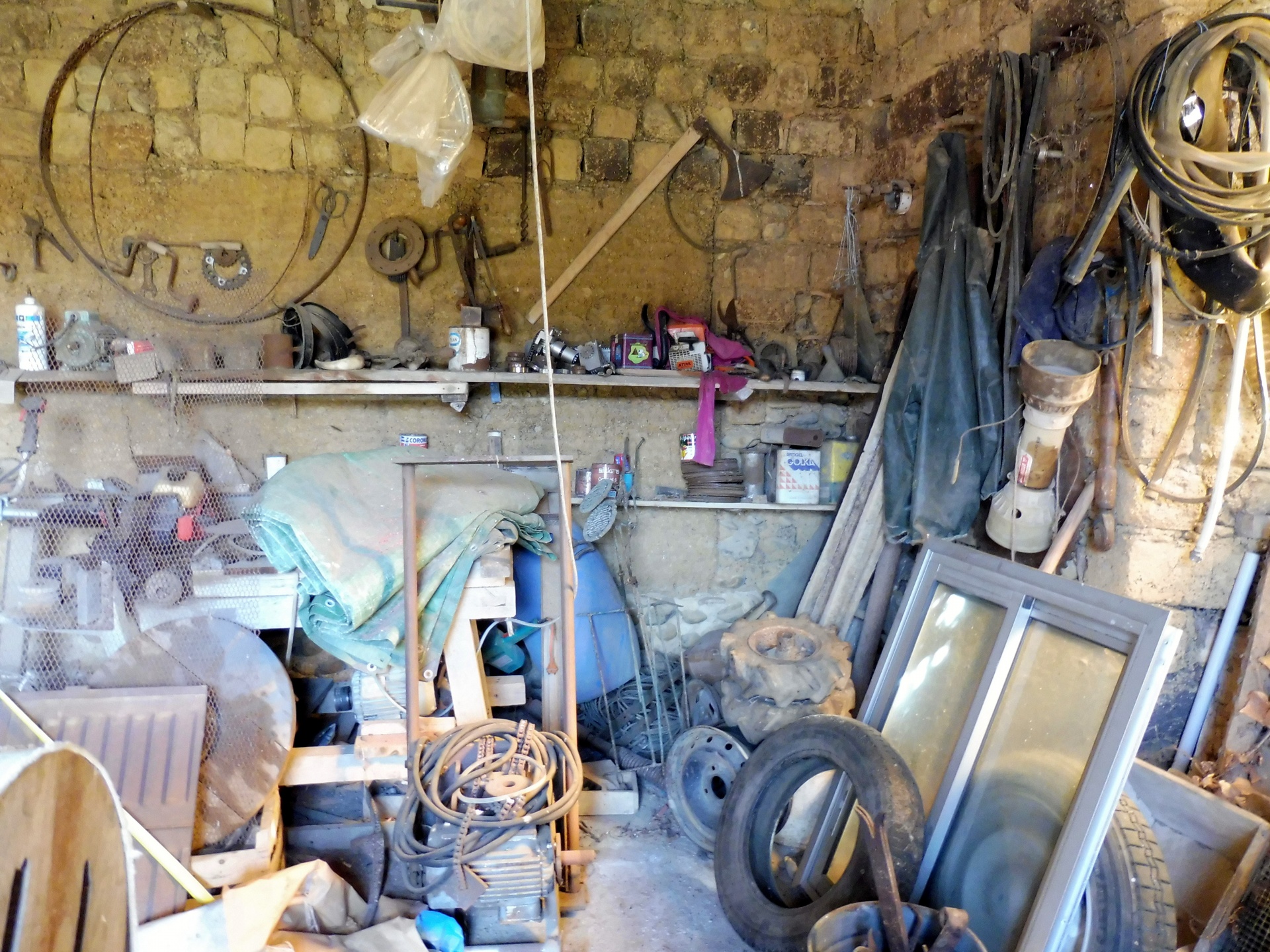Got a bunch of rusty bolts making your DIY projects a nightmare? Don’t worry, you’re not alone. Rust can be a real pain, especially when it comes to those stubborn bolts that just won’t budge. But the good news is, there are plenty of rust removers out there that can make your life a whole lot easier.
Understanding Rust and Its Impact on Bolts
Dealing with rusted bolts is a common challenge in DIY projects. Knowing what rust is and how it affects bolts helps you choose the best rust remover.
What Is Rust?
Rust is iron oxide. It forms when iron reacts with oxygen and moisture. This reaction leads to corrosion.

How Does Rust Affect Bolts?
Rust weakens bolts. It makes them brittle and hard to turn. Rust can cause bolt threads to seize, making removal difficult.
Types of Rust Removers
Different rust removers help tackle rusty bolts efficiently. Here are some options based on your needs.
Chemical Rust Removers
Chemical rust removers dissolve rust to make bolts usable. Most use phosphoric acid or oxalic acid. For example, products like Evapo-Rust or WD-40 Specialist are effective and widely available. Apply them directly to the rusted area and follow the manufacturer’s instructions.
Mechanical Rust Removal Tools
Mechanical tools physically scrape or grind rust off bolts. Use wire brushes, sandpaper, or a rotary tool like a Dremel. These tools are ideal for heavy-duty rust or when chemical methods fail. Ensure to wear safety gear to protect your eyes and skin.
Natural/Home Remedies
Natural and home remedies offer a non-toxic alternative. Vinegar, baking soda, and lemon juice are common options. Soak bolts in white vinegar overnight or use a paste of baking soda and water. Scrub with an old toothbrush for better results. These remedies are eco-friendly and cost-effective.
Each method offers unique advantages. Choose based on bolt condition and your preference for chemical or natural solutions.
Factors to Consider When Choosing a Rust Remover
Choosing the best rust remover depends on various factors. Consider these to select the right product for your rusty bolts.
Severity of Rust
Assess the severity of rust before picking a remover. Use stronger chemicals like phosphoric acid for heavy rust, which breaks down tough corrosion. Opt for milder options, such as vinegar, for light surface rust to prevent damage to the bolts.
Material of the Bolt
Identify the bolt material to avoid damage during rust removal. Use rust removers compatible with the bolt’s material, like steel-specific products for steel bolts, to prevent weakening. For delicate materials, select gentle solutions like baking soda paste.
Environmental Safety
Choose eco-friendly rust removers if environmental safety is a priority. Avoid products with toxic chemicals that may harm the environment. Look for biodegradable options or natural remedies, such as lemon juice, for safer choices.
Top Recommended Rust Removers for Bolts
Removing rust from bolts becomes easier if you know the right products. Here are top recommendations.
Best Chemical Based Removers
« Discover the Top 7 Deep Fryers for Doughnuts: Expert Reviews and Budget Picks Inside
Top 7 Best Slow Cookers for Induction Hobs You Need to Elevate Your Kitchen Game »
Consider using Evapo-Rust for its non-toxic formula. It’s effective and easy to use. Use it for heavily rusted bolts. Another recommended option is WD-40 Specialist Rust Remover Soak. It works well without harming the metal surface.
Best Tools for Mechanical Removal
Purchase a wire brush attachment for a power drill. It’s great for removing rust quickly. Sandpaper with grit levels of 80 to 120 is useful for manual removal. Consider a Dremel tool with a sanding bit for precision work on smaller bolts.
Best Natural Removers
Use white vinegar for light surface rust. Soak the bolts overnight. Baking soda mixed with water creates a paste that can scrub off rust. Try lemon juice combined with salt for a natural but effective option.
How to Use Rust Removers on Bolts Safely and Effectively
Rust removers simplify bolt maintenance. Follow safety tips and application techniques to use them effectively.
Preparation and Safety Measures
Wear protective gear. Use gloves and safety glasses to avoid skin and eye irritation.
Ensure ventilation. Work in a well-ventilated area to prevent inhalation of harmful fumes.
Test on a small area. Apply the rust remover on a small part of the bolt first to ensure no adverse reactions.
Application Techniques
Apply remover evenly. Use a brush or cloth to spread the rust remover across the bolt, ensuring even coverage.
Wait as directed. Follow the product’s recommended waiting time for optimal results.
Rinse thoroughly. Wash the bolt with water to remove any residue, preventing future rust formation.
Conclusion
Dealing with rusty bolts doesn’t have to be a daunting task. With the right rust remover, you can make your DIY projects smoother and more efficient. Whether you prefer chemical, mechanical, or natural solutions, there’s an option that fits your needs.
Always consider the severity of the rust, the material of the bolt, and environmental factors when choosing a rust remover. Don’t forget to prioritize safety by wearing protective gear and ensuring good ventilation.
By following the recommended techniques and safety measures, you’ll be well on your way to restoring those rusty bolts to their former glory. Happy DIY-ing!















